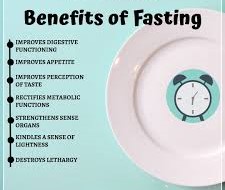In Ayurveda, fasting isn’t just a dietary change; it’s a healing practice designed to purify the mind and body. Known as “Upavasa” in Sanskrit, fasting serves as a way to rest and rejuvenate the digestive system, allowing the body to detoxify naturally. Ayurvedic fasting varies based on individual doshas, or body types—Vata, Pitta, and Kapha—each with unique guidelines to ensure safe and effective fasting. Here, we’ll explore the benefits of Ayurvedic fasting and guidelines for incorporating this practice into your lifestyle.
What is Ayurvedic Fasting?
Ayurvedic fasting is the practice of intentionally abstaining from certain foods to aid digestion and promote internal healing. Unlike other fasting methods, Ayurvedic fasting considers each person’s dosha and tailors the fasting approach to align with their physical and mental constitution. This personalized fasting helps in balancing the doshas and restoring the body’s natural harmony.
Benefits of Fasting in Ayurveda
- Enhances Digestive Health
- Ayurvedic fasting allows the digestive system to rest, enabling it to eliminate toxins, or “ama,” which accumulate from undigested food. By detoxifying, the digestive organs can function more effectively, resulting in improved digestion and nutrient absorption.
- Boosts Immunity
- By clearing toxins and impurities, fasting strengthens the immune system, allowing it to better protect the body against diseases. When practiced regularly, fasting can be a natural way to boost immunity, enhancing resistance to seasonal illnesses.
- Promotes Mental Clarity
- Fasting is known to improve mental focus and clarity. During a fast, the body redirects energy typically used for digestion towards cognitive processes, supporting mental clarity and emotional balance.
- Supports Weight Management
- For those seeking a natural way to manage weight, fasting in Ayurveda can be highly effective. It helps in reducing excess fat, especially for Kapha dosha types, by encouraging the body to burn stored fats for energy.
- Slows the Aging Process
- Regular fasting promotes cellular repair and reduces oxidative stress, both of which are crucial for slowing down the aging process. This practice is often seen as an anti-aging tool in Ayurveda, promoting vitality and longevity.

Guidelines for Ayurvedic Fasting by Dosha
1. Vata Dosha
- Best Practices: Light fasting is ideal, as long periods without food can imbalance Vata, leading to restlessness or fatigue. Consider a mono-diet of warm, easily digestible foods like soups or steamed vegetables for Vata fasts.
- Duration: Short, intermittent fasts (8–12 hours) are best for Vata types to avoid aggravating this dosha.
2. Pitta Dosha
- Best Practices: Pitta individuals should fast with cooling foods like coconut water, cucumber, and leafy greens to maintain balance. Avoid overly spicy or acidic foods.
- Duration: 12–24 hours is ideal for Pitta types, allowing enough time to detox without increasing heat in the body.
3. Kapha Dosha
- Best Practices: Kapha types benefit from longer fasting periods, as they have naturally stronger endurance. Light meals, or just herbal teas and broths, work well during Kapha fasts.
- Duration: 24 hours or more, depending on individual needs and tolerance, is recommended for Kapha types to stimulate metabolic processes and burn fat.
How to Prepare for an Ayurvedic Fast
- Gradually Reduce Intake: Start by reducing portion sizes and avoiding heavy foods a day before the fast. This will help the body transition into the fasting phase more comfortably.
- Stay Hydrated: Drink warm water or herbal teas throughout the fasting period to help flush out toxins.
- Set Intentions: Fasting in Ayurveda is a mindful practice. Setting intentions for your fast can enhance the experience and strengthen your commitment.
Breaking the Fast
Breaking a fast is just as important as the fasting process itself. Ayurveda recommends starting with light foods like warm broths or soups to gradually ease your digestive system back into a regular eating pattern. Avoid heavy, fried, or processed foods immediately after a fast to prevent digestive upset.
Safety Precautions
- Consult an Ayurvedic Practitioner: Especially for those with pre-existing health conditions, consulting a practitioner is key to ensure fasting is safe and tailored to your needs.
- Avoid Strenuous Activities: Fasting can lower energy levels; avoid heavy physical activities during your fast.
- Listen to Your Body: If you feel weak, dizzy, or uncomfortable, stop the fast and consume something light.
Conclusion
Exploring Ayurvedic Fasting Benefits can be transformative, as fasting within Ayurveda supports physical and mental well-being. By aligning with Ayurvedic principles and understanding your dosha, fasting becomes a tool for detoxification, increased energy, and improved digestion. Embrace these Ayurvedic fasting benefits for a balanced, rejuvenated lifestyle. To learn more, visit the Ayurveda Health Guide on Fasting.
For more insights into Ayurvedic practices, visit our Ayurveda Blog.
